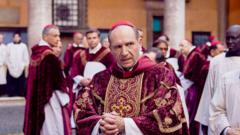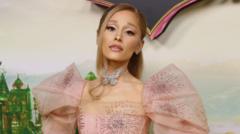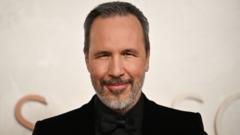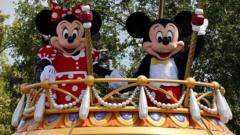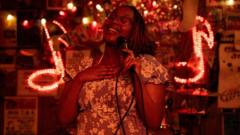As the world awaits the upcoming papal conclave set for May 7, 2024, the film "Conclave" has garnered significant attention, shedding light on the intricate and often secretive process of selecting a new pope. With Ralph Fiennes playing the role of Cardinal Lawrence, the film dives deep into the dynamics of power as 134 cardinals isolate themselves within the Vatican's Sistine Chapel, completely removed from outside influences until the moment the new pope is announced with the symbolic plume of white smoke.
The film, inspired by Robert Harris's bestselling novel, captures the intense atmosphere of the conclave, where the cardinal-electors—bound by tradition—find themselves in a historical practice aimed at ensuring unbiased decision-making. Notably, this isolation fosters a palpable sense of seriousness, reflecting on the heavy responsibility experienced by these religious figures. Anna Rowlands, a theology professor at the University of Durham, articulates that the conclave generates an extraordinary ambiance of introspection and heightened accountability.
Dramatic scenes in "Conclave" spotlight strategic interactions and political alliances among the cardinals, emphasizing the conflicts of interest and varied ideologies that define the election process. As professor Tina Beattie points out, the backdrop of Pope Francis’s deteriorating health creates a ripe environment for political maneuvering well ahead of the official conclave. It suggests that the real drama often unfolds in preliminary meetings where the cardinals begin to forge alliances and define shared objectives, laying the groundwork for the official voting process.
Contrary to the film's narrative of an unknown cardinal emerging as a candidate, the reality insists that only those publicly appointed by a previous pope can participate in the conclave. Nonetheless, the upcoming event could witness profound unpredictability, as 80% of today's eligible cardinals were appointed by Pope Francis and represent diverse global backgrounds, enriching and complicating the potential outcomes.
Director Edward Berger highlights the human aspect of the conclave, marking the participants as relatable figures burdened with ambition and vulnerability, rather than mere representatives of tradition. This perspective invites viewers to acknowledge both the spiritual significance and human complexities nestled within the conclave. Prof. Rowlands concludes that the film effectively conveys the profound emotional spectrum present in such historical rituals, combining divine purpose with the very essence of human experience.

